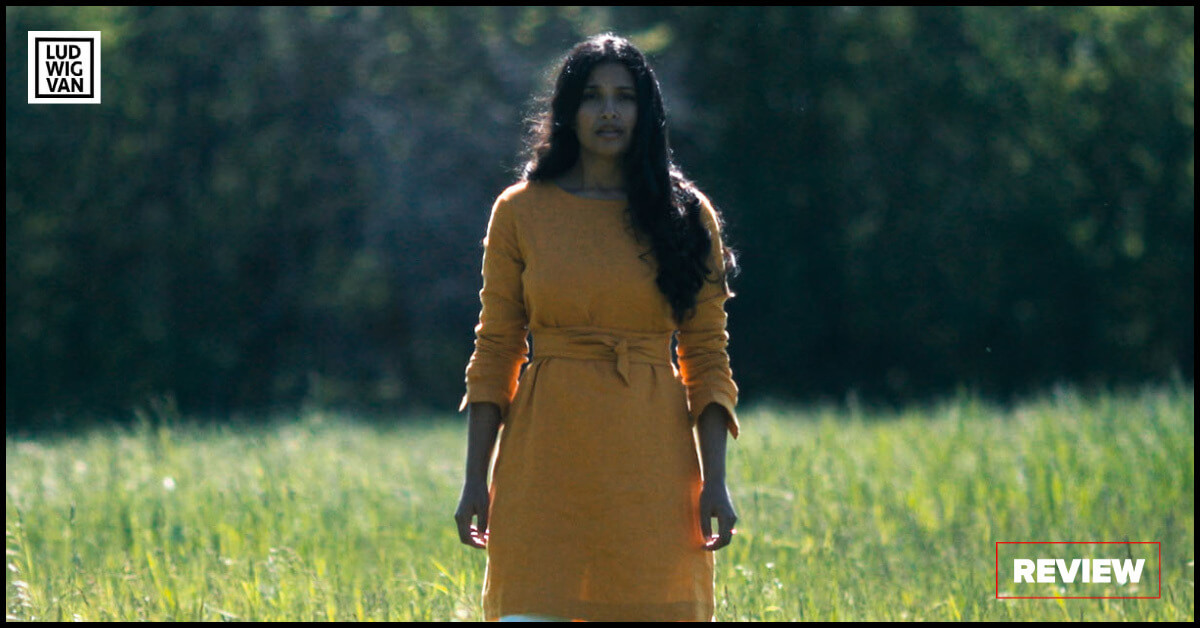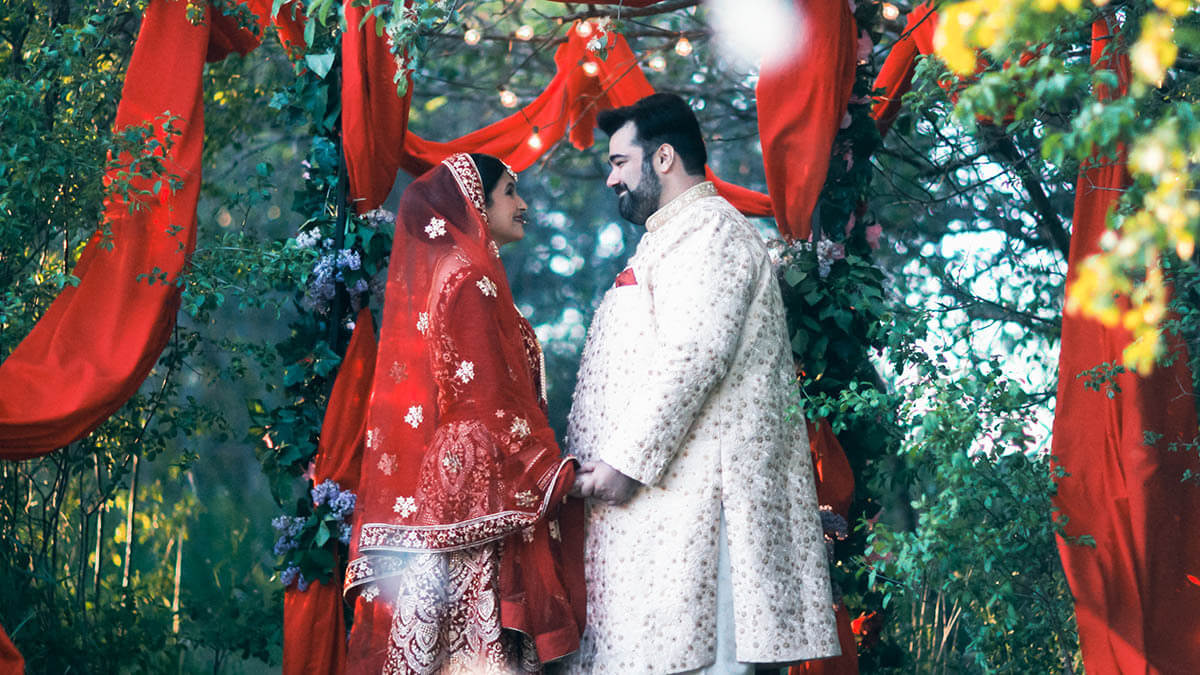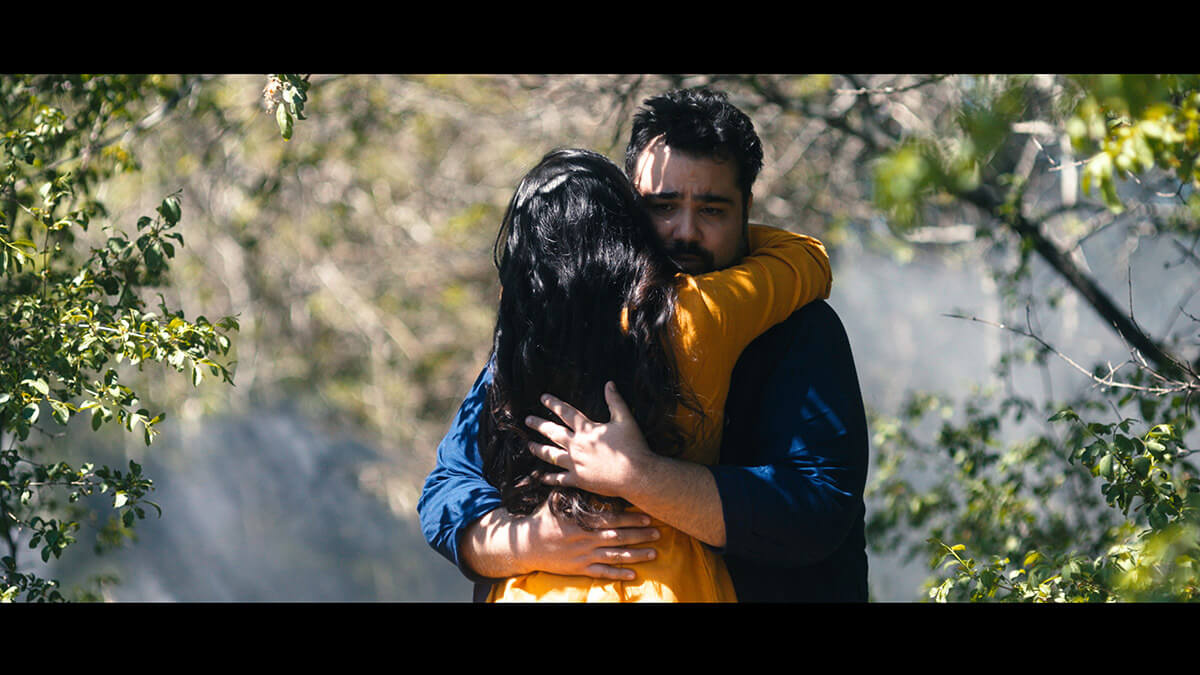
Against the Grain Theatre/Savitri, libretto and score by Gustav Holst, directed by Miriam Khalil, film streaming June 23 to July 11. Free tickets available online.
Against the Grain Theatre, Canada’s feisty, out of the box little opera company, has struck gold once again with Savitri (1916), a 40-minute chamber opera by English composer Gustav Holst.
Holst, who wrote his own libretto, originally conceived the work to be performed out of doors, and that is precisely where it was atmospherically filmed, in the bucolic woods and fields around Consecon Village, Prince Edward County. Lebanese-Canadian soprano Miriam Khalil has made a stunning directorial debut, aided by Punjabi-Canadian associate director, mezzo-soprano Simran Claire. Strong women telling a story about a strong woman, as it were.
The tale of Savitri (soprano Meher Pavri) and Satyavan (tenor Andrew Haji), that so inspired Holst, is found in the Hindu holy book The Mahabharata. The princess Savitri chooses the exiled prince Satyavan as her husband, even though she knows he will die exactly a year after their marriage. When Yama, the god of death, comes calling (bass-baritone Vartan Gabrielian), Savitri saves Satyavan through her devotion and purity.
The company goes through hoops to make their case for their treatment of British colonial Holst’s cultural appropriation of Indian mythology. They have a mostly BIPOC cast and creative team.

As well, audience members have access to a pre-show chat that addresses the history and origins of this much-loved story, to which the cast and crew detail how their diverse heritages connect to the production. As well, there is prelude and postlude Hindustani music composed and performed by Arnab Chakrabarty and Shahbaz Hussain which wonderfully captures theme and setting. AtG has left no stone unturned.
Because this is film, director Khalil is able to utilize many different visual approaches. For example, aided by videographer/editor Dylan Toombs, she frequently cuts between shots of the wedding bower scene, the day-to-day life of the couple such as Satyavan chopping wood, and the mystical arrival of Yama through the mist.
A key device is varying shots of the characters wandering through woods and fields, or merely standing still. Sometimes we see the cast lip-sync to their lyrics, while other times they are silent actors. What I noticed particularly, is how Khalil ties her shots to the swell of the orchestra in a perfect marriage between image and music. The film Savitri is a very impressive directorial debut for Khalil.
I do, however, have a complaint. The credits begin rolling against a lovely floral backdrop, but then we cut to a snippet of a Zoom call, followed by behind the scenes filming sequences. There is laughter and banter, and even a comic loop of Savitri and Satyavan in their wedding finery swaying back and forth as they hold hands. My question is why? I found it irritating, particularly as these shenanigans are running over the exquisite postlude Hindustani music. Khalil and Co. worked so hard to create a specific mood, a fantasy world of ethereal beauty, so why gimmick it up?

The singing, however, is first rate. Holst wrote the part of Savitri for a mezzo-soprano, but Pavri’s clear as a bell soprano works very well in conveying her purity. It is a very pretty voice with lots of colour and no trace of harshness. Haji is clearly a meat and potatoes tenor who can do the big sings of Verdi and Puccini. He has a lush sound that can only keep getting richer as it darkens and deepens. For his turn, bass-baritone Gabrielian has a voice that comes from his toes — magisterial and commanding, with just enough vibrato to give it bite. It truly is the voice of doom, and an impressive one at that.
Holst belongs to what I call the stately school of English composers that includes Vaughan Williams and Elgar, all of whom wrote with restraint. Modernist is the word I’d use to describe the score — no real dissonance, yet no real actual tunes either. It is an atmospheric score writ large, and is beautifully captured by conductor Simon Rivard and his 12-member ensemble. In fact, Rivard ably renders the subtle tones which pervade most of the score, yet builds to the few dramatic climaxes in goodly fashion. There is also an excellent 8-member vocalise female chorus who contribute the necessary otherworldly component. Anyone familiar with Holst’s The Planets knows that the man can toss off wordless choruses, and the one for Savitri is gorgeous.
Nothing in this production has been left to chance, be it Ming Wong’s attractive quasi-Indian costumes, Pouya Hamidi’s sound design, Makeuplicious by Mika’s wedding makeup, or Free Rani’s jewellery. The sets, such as they are, built with flowers and blankets, are as simple and restrained as the music.
The film is streaming online until July 11.
#LUDWIGVAN
Get the daily arts news straight to your inbox.



